News & Media
Unisa KZN launches Library Book Club with a call to read, reflect and rise
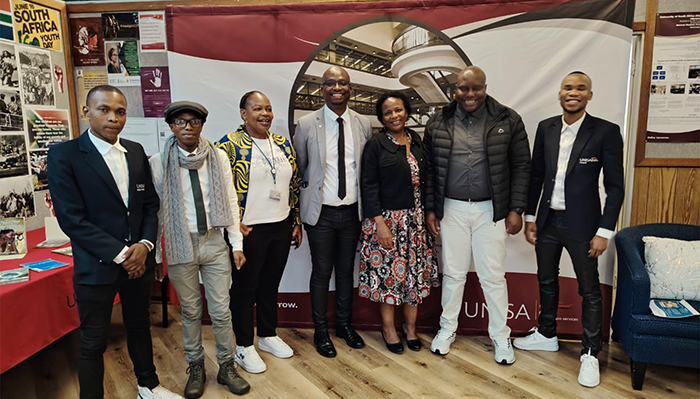
Programme participants: Andile Ndlela, Mxolisi Nxumalo, Penny Shezi, Sbongiseni Ngubane, Dr Joyce Myeza, Lindelani Dhlodhlo and Aphiwe Dlamini
On 27 June 2025, Unisa celebrated Youth Month in Durban – and did so with purpose and passion. In collaboration with the Department of Information Science and the National Student Representative Council (NSRC), Unisa Library and Information Services (LIS) hosted an inspiring Book Talk workshop and officially launched the Unisa Library KwaZulu-Natal (KZN) Book Club – an initiative aimed at restoring the culture of reading, storytelling and youth empowerment in indigenous languages, particularly isiZulu.
The event was rich with heritage, youthful energy and literary inspiration, all in remembrance of the 1976 Soweto Uprising, a pivotal moment when brave young people defied the apartheid regime to fight for access to quality education. Unisa’s message to the youth of 2025 was clear: "Continue their legacy. Write your own story."
Unisa KZN Regional Director, Dr Joyce Myeza, reminded attendees that promoting indigenous languages is essential to preserving cultural identity. "It is not just about celebrating a book," she said. "It is about celebrating the African in us. Our languages are part of our dignity."
She also praised the leadership of Sbongiseni Ngubane, KZN Unisa Library and Information Services Manager, and highlighted the library’s commitment to meaningful transformation. "What you are doing here advances the country by encouraging people to embrace who they are and take pride in their home languages," she said.
Empowering through libraries and book clubs
Freeman Zulu, Deputy Director of LIS, provided a broader context for the event’s purpose. "This is part of our national rollout. We have hosted Book Talk workshops in Gauteng, Limpopo and Northwest – and today, KwaZulu-Natal joins the map of literary transformation."
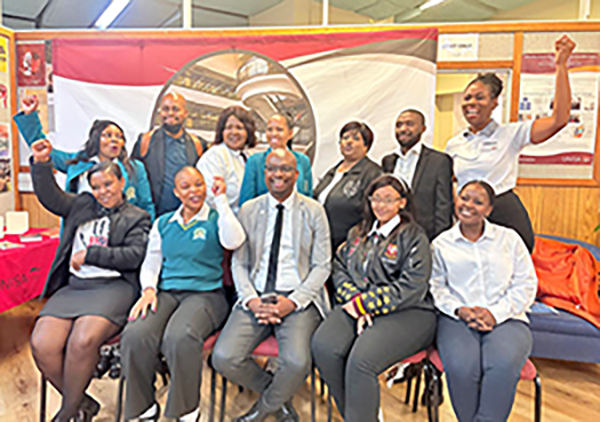
The Durban Library organising committee
He emphasised that the Library Book Club is not merely about reading, but about nurturing literacy, critical thinking, emotional well-being and student growth. "We want libraries to become vibrant centres of discussion, debate and discovery," Zulu said. "Through Book Clubs, students develop not just academically, but holistically."
Drawing from the national model led by Gauteng Book Club Chairperson Boitumelo Thubane, Zulu outlined several core activities now being introduced in Durban:
- Themed book discussions
- Book quizzes and debates
- Literary plays and read-aloud sessions
- Volunteering and community outreach projects
"These activities encourage students to read beyond their coursework, improve their confidence, and foster community and inclusivity," he said. "We are also addressing the South African reading crisis. Everyone deserves to experience the power of a good book."
Andile Ndlela, Chairperson of the Regional SRC, delivered a powerful reflection on youth activism. "Young people in 1976 fought for education," he said. "Today, we must fight for dignity, justice, and equal access to opportunities. Books give us this opportunity – they expand our minds and prepare us to challenge inequality."
A highlight of the event was an inspiring address by Mxolisi Nxumalo, a young Unisa staff member and author who published five books before age 30. Sharing his journey from student to storyteller, Nxumalo said, "I started with accounting, but Unisa helped me find my true path – communication and language. I became a reader first. Sometimes I read six books a month. Reading is what made me a writer."
He urged students to preserve indigenous knowledge and culture through literature. "We think in our languages. When we write in isiZulu or isiXhosa, we are not just telling stories – we are archiving culture, memory and meaning."
He challenged readers to diversify their reading habits. "Do not just read one author. Do not just read English. Buy a book every month. Read in your home language and beyond. That is how we grow."
Now officially launched, the Unisa Durban Library Book Club will host monthly literary discussions, cultural events, writing workshops and outreach programmes targeting schools and public libraries. Inspired by the successes of Gauteng and other provinces, the Durban chapter embraces a mission to foster lifelong learning, inclusion and literacy.
The initiative aligns with Unisa’s Core Curriculum Framework, which recognises that success extends beyond academic performance, including emotional intelligence, communication and resilience.
Music, dance and celebration filled the space as the event drew to a close. The atmosphere was joyful, hopeful and proudly African. Through books, language and community, Unisa is helping the next generation find their voice and write their future.
* By Itumeleng Mpete, Marketing Coordinator, Library and Information Service
Publish date: 2025-07-18 00:00:00.0


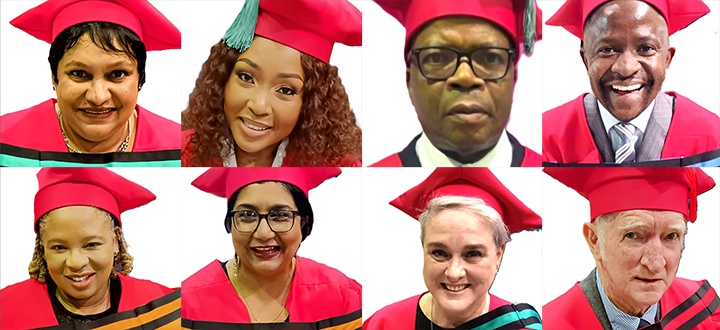 Eleven triumphs: A look at Unisa’s latest batch of doctoral graduates
Eleven triumphs: A look at Unisa’s latest batch of doctoral graduates
 Getting back up and trying again is what counts
Getting back up and trying again is what counts
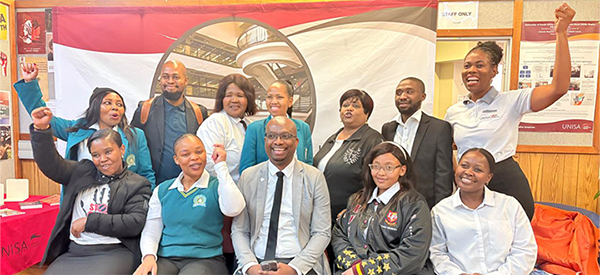 Unisa KZN launches Library Book Club with a call to read, reflect and rise
Unisa KZN launches Library Book Club with a call to read, reflect and rise
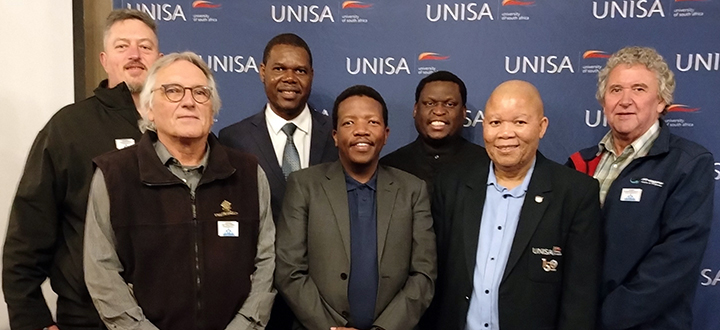 Unisa strengthens ties with West Coast business sector
Unisa strengthens ties with West Coast business sector
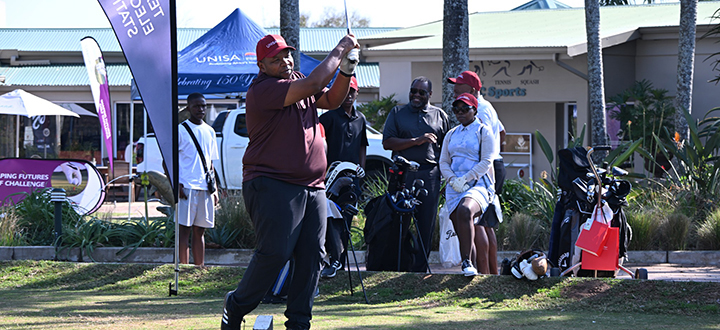 Golfers united in their commitment to assist Unisa students
Golfers united in their commitment to assist Unisa students